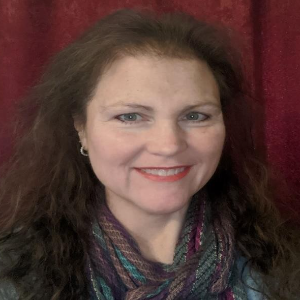Title : Reading: The never-ending struggle between faculty and students
Abstract:
Academic assessments to gauge student mastery of content are necessary at every level. Students have historically turned to lecture notes as a primary source of information, negating the textbook, even when the syllabus clearly identifies required readings. While multiple past articles have been written regarding the lack of reading participation by students, a consensus for improvement, has not been reached. Suggestions from several authors include increasing the number of assessments, changing exams to weekly quizzes, or instructor reassessment of the textbook to find a more ‘user friendly’ text that will be appealing. With students averaging approximately $1000 per year on textbooks, the importance of the text material needs to be understood by the student and requires innovation on the part of the instructor. During the 2022/2023 academic year, after being introduced to the concept of reading roadmaps, nursing students in my class were offered a roadmap for every section. The roadmaps were due prior to the lecture, and designed to focus their reading, preparing students for the class content to be discussed. After attending a teaching conference, in June of 2023, the roadmap was expanded to include questions regarding what they had read, and identification of experiences that are similar to or included the concept they just read. Half of the term included roadmaps and the second half of the term included roadmaps with focus questions. At the end of the term, student feedback was requested. Feedback from students was overwhelmingly positive toward the inclusion of reading roadmaps. The didactic portion of the class became focused on clarification of materials through open group conversations with question and answer. The Power Point lectures were lessened, focusing on pertinent ‘facts’ that provided time for student and faculty storytelling. Students stated they had a reduction in anxiety regarding their textbook and the amount of required material. With the inclusion of questions, students stated they felt a better understanding, once the material was openly discussed during the class, with a focus on questions and storytelling, allowing a connection to their experiences. However, limitations to this strategy include students feeling they spend an excessive amount of time on the reading roadmaps, work in groups to complete the strategy and felt the roadmaps should be worth more ‘points’ toward their grade in the class. Offering instructions regarding the length of an answer (word count, sentence count, etc) and decreasing words such as ‘discuss’ or ‘describe’ may be helpful in eliciting concise answers. Working in groups may be a good strategy if the students are discussing the materials or may require further innovation on the part of the instructor (ex: assigned groups, etc). Identification of potential points need to be addressed in the syllabus or course with the inclusion of a rubric to assure full disclosure of expectations.
Audience Take Away:
- Participants will learn how to engage higher education students in the reading of required textbook sections or priorities to increase student knowledge of important content.
- Participants will be able to implement this easy intervention immediately in both undergraduate and graduate courses.
- Participants will learn tips to change the intervention to meet the needs of any course.
- Participants will benefit from this knowledge by integrating into practice this simple technique to enhance and focus student textbook reading to improve the participation in class, and potentially increase test scores.



